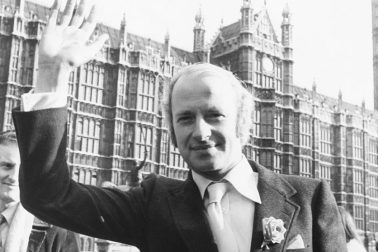In the final election push, the Tories are trying to drag the Labour party into a game of taxation whack-a-mole. The Conservatives seem to think that the threat of tax rises is the one lifeline they have. After bungling their £2,000 per-family line with a row about where the numbers come from, they are now teasing out denials about specific raises from the left. First, it was over Capital Gains Tax, and then council tax, forcing Labour to deny they would re-band, as Welsh Labour have done.
A tax levied according to what your property was worth (or, indeed, hypothetically worth) in 1991 feels a bit baffling
Starmer and his team have batted most of these away. They maintain their plans are in full step with the costed manifesto and there will be no rises or changes except those already telegraphed. This will probably hold them through the campaign, but will box them in once Sir Keir makes it to Number 10 and shadow chancellor Rachel Reeves is sweating over spreadsheets next door.
The UK faces significant fiscal challenges. Growth has been stagnant, but the population is ageing and demand for public services is rising. It is hard to see how this circle is squared without at least short-term tax rises. More than that, tax reform has been neglected by successive governments, with little new thinking on how and where revenue is raised. Council tax is perhaps one of the most egregious examples of this, and one you might hope a bold government with a big majority would turn its attention to.
Even from the outset, a tax levied according to what your property was worth (or, indeed, hypothetically worth) in 1991 feels a bit baffling. More than that, it functions poorly as a tax. In most cases it is highly regressive. Though tied to property values, its link with wealth and income is tangential. Denser cities with more properties, extra income from business rates, and often less demand for core services, have an advantage against others, distorting who pays the tax. The most expensive Band H properties in Westminster pay less than modest Band D properties in somewhere like Rutland. A re-banding, especially introducing new, higher tiers, could ameliorate some of this.
The tax also serves councils badly. Almost all of them are straining under the weight of statutory services, like social care, that they can neither fund properly nor cut. In the absence of a centralised funding model, local government in England alone spends more than £23 billion a year on care services. This is about half of the total council tax receipts, with other responsibilities like – road repairs, libraries, or bins – fighting over the rest. Around a fifth of councils expect to go into effective insolvency in the next year. Many, such as Birmingham, already have.
Council tax is also an unpopular tax. For the average person, it’s one of the few levies not paid at source. The monthly direct debits rankle a little more than pay-check deductions. It also often feels poor value for money, as local services have crumbled most during austerity. Rises can be particularly hated, as could a major shake-up. After all, the current system was itself established after the disastrous introduction of the Poll Tax. This is partly why the Tories compounded council’s financial problems by limiting how much they can raise the tax.
Sir Keir’s caution is understandable. He has an election to win, and tax rises are an obvious threat to that. Messing with council tax would be especially risky as it would be hard to know who the winners and losers were until the plans were fully-furnished – with skittish voters likely to assume they would be the ones to lose out. By stepping away from the issue altogether he is once again highlighting the issues with his platform.
If an incoming government with a huge majority is not willing to tackle big structural problems, it is hard to see who will. Local government finance has become unsustainable, fuelled in part by the weakness of council tax. The whole thing is ripe for reform, yet Labour still seems to feel too hemmed in to deal with it. Reforming a regressive, poorly functioning tax should be absolutely within a Labour government’s wheelhouse. Instead, they seem committed to the status quo.
As we hit the final weeks of the election, it is likely that Labour will hunker down even more. Beyond that, however, they might regret the caution. Part of the Tories’ current predicament is their failure to use a mandate to effect bold change. If the Labour party have greater power and still fail to wield it, it could lead to similar levels of disappointment. Winning a majority is a challenge, but so too is using one effectively. With Labour unwilling to take political risks, it might squander a generational chance to really sort out some of the trickiest political issues of our time.
Join Fraser Nelson, Katy Balls and Kate Andrews for a post-election live recording of Coffee House Shots in Westminster, Thu 11 July. Bar opens 6.30pm, recording starts 7pm







Comments